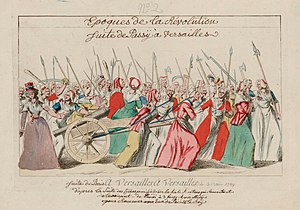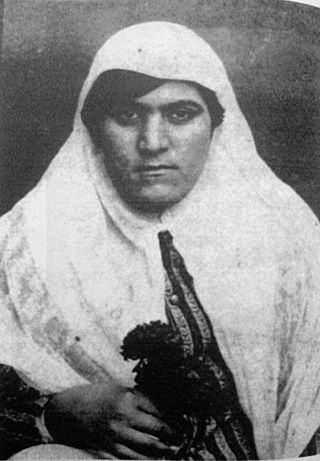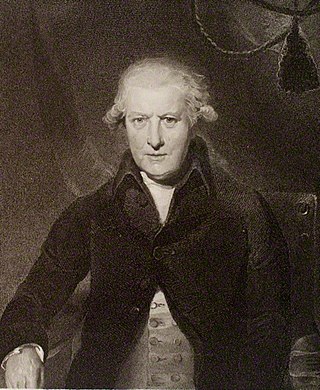Contents

The following is a list of food riots .

The following is a list of food riots .



A riot or mob violence is a form of civil disorder commonly characterized by a group lashing out in a violent public disturbance against authority, property or people.

The Irish Famine of 1740–1741 in the Kingdom of Ireland, is estimated to have killed between 13% and 20% of the 1740 population of 2.4 million people, which was a proportionately greater loss than during the Great Famine of 1845–1852.

The Caracazo is the name given to the wave of protests, riots, and looting that started on 27 February 1989 in the Venezuelan city of Guarenas, spreading to Caracas and surrounding towns following austerity measures from President Carlos Andrés Pérez. Weeklong clashes resulted in numerous deaths, with estimates ranging from hundreds to thousands, attributed largely to security forces and military involvement, according to various reports. The riots and the protests began mainly in response to the government's economic reforms and the resulting increase in the price of gasoline and transportation

In economics, a shortage or excess demand is a situation in which the demand for a product or service exceeds its supply in a market. It is the opposite of an excess supply (surplus).
The Boston bread riot was the last of a series of three riots by the poor of Boston in Massachusetts Bay Colony between 1710 and 1713, in response to food shortages and high bread prices. The riot ended with minimal casualties.

The Southern bread riots were events of civil unrest in the Confederacy during the American Civil War, perpetrated mostly by women in March and April 1863. During these riots, which occurred in cities throughout the Southern United States, hungry women and men invaded and looted various shops and stores.

A food riot is a riot in protest of a shortage and/or unequal distribution of food. Historical causes have included rises in food prices, harvest failures, inept food storage, transport problems, food speculation, hoarding, poisoning of food, and attacks by pests.

The Egyptian "bread riots" of 1977 were a spontaneous uprising against the increase in commodities' prices on the 18th and 19th of January after the Egyptian government cut subsidies for basic foodstuff.
The Flour War refers to a wave of riots from April to May 1775, in the northern, eastern, and western parts of the Kingdom of France. It followed an increase in grain prices, and subsequently bread prices; bread was an important source of food among the populace. Contributing factors to the riots include poor weather and harvests, and the withholding by police of public grain supplies from the royal stores in 1773–1774. This large-scale revolt subsided following wheat price controls imposed by Turgot, Louis XVI's Controller-General of Finances, and the deploying of military troops.
The Nupi Lan were two demonstrations led by women in Manipur, British India against the colonial authorities. In 1904, the first Nupi Lan broke out in response to an order by the colonial authorities to send Manipuri men to the Kabow Valley to fetch timber for re-building the then Police Agent's bungalow. The second Nupi Lan broke out in 1939 in response to the export of rice during the Second World War.

Shortages in Venezuela of food staples and basic necessities occurred throughout Venezuela's history. Scarcity became more widespread following the enactment of price controls and other policies under the government of Hugo Chávez and exacerbated by the policy of withholding United States dollars from importers under the government of Nicolás Maduro. The severity of the shortages led to the largest refugee crisis ever recorded in the Americas.

The Tunisian bread riots were a series of violent demonstrations in Tunisia that occurred from December 1983 to January 1984, triggered by a rise in the price of bread due to an IMF-imposed austerity program. President Habib Bourguiba declared a state of emergency and the riots were put down by force. Over 100 rioters died. The regime was weakened by the upheavals and the aftermath of food riots. Three years later General Zine El Abidine Ben Ali seized power in a coup.

The Potato riots in June–July 1917 was a popular uprising in the Dutch capital city Amsterdam that was caused by the food shortage in the Netherlands during World War I.

Meira Paibi is a women's social movement in the Indian state of Manipur. Referred to as the "guardians of civil society", Meira Paibi dates to 1977 in present Kakching district. It derives its name from the flaming torches which the women carry while marching through city streets, often at night. They do so both as a patrol, and in protest, seeking redress against human rights violations committed by paramilitary and armed forces units against the innocent. Contextualized, Meira Paibi was founded at a time when the people of Manipur were fighting for self-determination, political autonomy, and independence.

Zainab Pasha was an Iranian woman who lived during the Qajar dynasty in late 19th century. She is most notable for her role in the Tobacco Protest, the beginning of the Constitutional Revolution of Iran, for leading a group of women in an uprising in the city of Tabriz by attacking wealthy merchants. This led to the closure of the Tabriz Market.

The Nottingham cheese riot started on 2 October 1766 at the city's Goose Fair. The riot came at a time of food shortages and rising prices in England. Violence broke out when local citizens intervened to prevent Lincolnshire merchants taking away Nottinghamshire cheeses they had bought at the fair. A warehouse, shops and a cargo boat were looted and hundreds of cheese wheels were rolled through the streets. The army was deployed when the mayor was unable to restore control. One man was killed and others wounded as soldiers opened fire on the crowds. Order was eventually restored after some days of unrest.

The 1766 food riots took place across England in response to rises in the prices of wheat and other cereals following a series of poor harvests. Riots were sparked by the first largescale exports of grain in August and peaked in September–October. Around 131 riots were recorded, though many were relatively non-violent. In many cases traders and farmers were forced by the rioters to sell their wares at lower rates. In some instances, violence occurred with shops and warehouses looted and mills destroyed. There were riots in many towns and villages across the country but particularly in the South West and the Midlands, which included the Nottingham cheese riot.
In May 2022, ongoing protests in Iran escalated into nationwide civil unrest as a result of government price hikes on staple foods including bread and pasta. The protests were part of a countrywide wave of protests beginning in July 2021. Protests were initially concentrated in the drought-stricken province of Khuzestan, but rapidly spread nationwide. Authorities responded by declaring riot control action and blocking internet access.

The "Potato revolution" is the name given to the food riot that took place in the Prussian capital Berlin between April 21 and April 22/23, 1847.